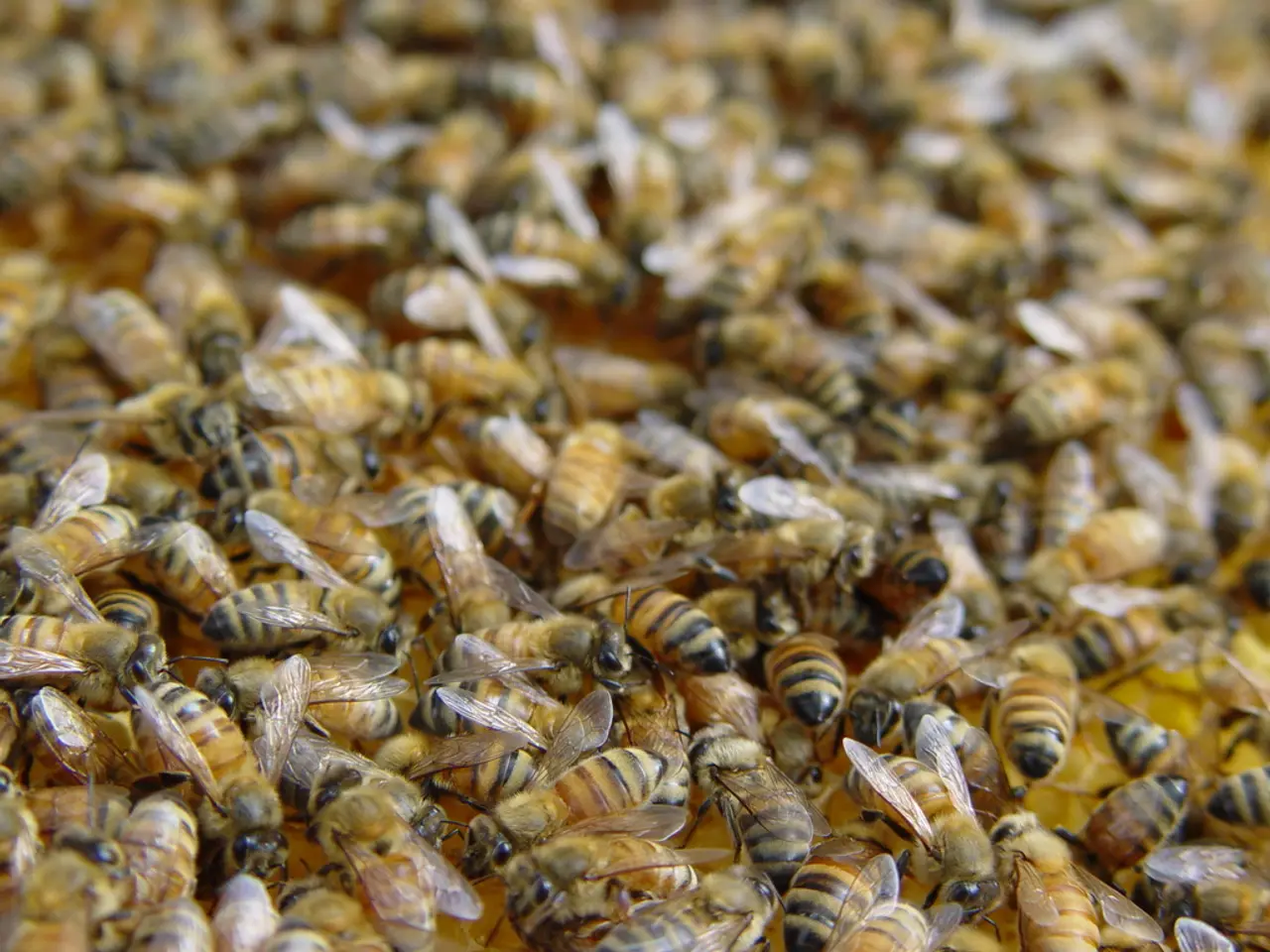Website leaders held discussions with EU Commissioner
In a significant move towards environmental conservation, the EU Commissioner for the Environment, Water Resilience, and a Competitive Circular Economy, Jessika Roswall, has emphasized the importance of preserving bees and pollinators. This commitment was made during a public statement on World Bee Day (20 May) and beyond.
Roswall received a leadership award via video conference and highlighted the fight against counterfeit honey for consumer protection and the preservation of beekeeping. She particularly emphasized the need to consider bees as part of European environmental policy, not just as part of agriculture.
Financial resources have been proposed for indigenous honey plants in all European countries within the environmental policy framework. The Commissioner also underscored the importance of working together and highlighted that there will be many discussions on the importance of pollinators.
The EU Commissioner expressed delight at meeting and stressed her awareness and support for the importance of bees and pollinators. To this end, a connection between the Cabinet of the EU Commissioner for the Environment, the Cabinet of the EU Commissioner for Agriculture, and the European Beekeeping Association will be established to define concrete measures.
Bees, an indispensable part of the environment, provide a third of the world's food through pollination. They care for biodiversity and perform a pollination service. However, beekeepers have expressed urgent demands for support, emphasizing that bees cannot survive without their help. The Asian hornet problem was also highlighted during the meeting.
The EU has implemented concrete measures and made public commitments to preserve and support bees and pollinators. This includes binding targets and legislation, a comprehensive policy framework, public engagement and youth involvement, and agricultural and land management practices.
The EU Biodiversity Strategy for 2030 and the EU Pollinators Initiative include a commitment to reverse the decline in wild pollinators by 2030. A key step is the Nature Restoration Law proposal, adopted by the European Commission in June 2022 and finalized in 2024, which legally requires Member States to halt and reverse pollinator decline by 2030.
The EU's approach combines the Pollinators Initiative, the Nature Restoration Law, sustainable use of pesticides regulation, new common agricultural policy (2023-2027), as well as farm to fork and biodiversity strategies. Together, these form a "new deal for European pollinators" responding directly to public concerns.
As part of mobilizing society, the EU plans participatory processes addressing complex issues around pollinator decline. A notable initiative is a Young Citizens' Assembly on pollinators, which will convene 100 young Europeans from September 2025 to March 2026 to discuss and propose solutions, promoting citizen participation in EU policymaking.
The European Environment Agency highlights the importance of pollinator-friendly agriculture, including diverse crop types, semi-natural habitats, and significant reductions in pesticide use. These practices are encouraged through EU policies and funding to sustain resilient ecosystems that support pollination services essential for food production.
In summary, on World Bee Day and throughout the year, the EU publicly affirms its commitment by combining legally binding restoration targets, standardized monitoring, public participation initiatives, and sustainable agricultural reforms to protect and restore pollinator populations critical for biodiversity and food security.
- Roswall's emphasis on bees as part of European environmental policy, not just agriculture, signals a shift towards considering them in the broader context of climate-change and environmental-science.
- In her public statement, Roswall outlined the need for educational initiatives, such as the Young Citizens' Assembly on pollinators, to encourage self-development and policy-and-legislation focused on personal-growth and environmental conservation.
- The establishment of a connection between the Cabinet of the EU Commissioner for the Environment, the Cabinet of the EU Commissioner for Agriculture, and the European Beekeeping Association is a significant step towards creating comprehensive policy-and-legislation to protect bees and other pollinators.
- The EU's approach to addressing climate-change and environmental issues, including the Pollinators Initiative, Nature Restoration Law, and sustainable agricultural reforms, is part of a broader general-news narrative focusing on responsible politics and the preservation of the environment.




